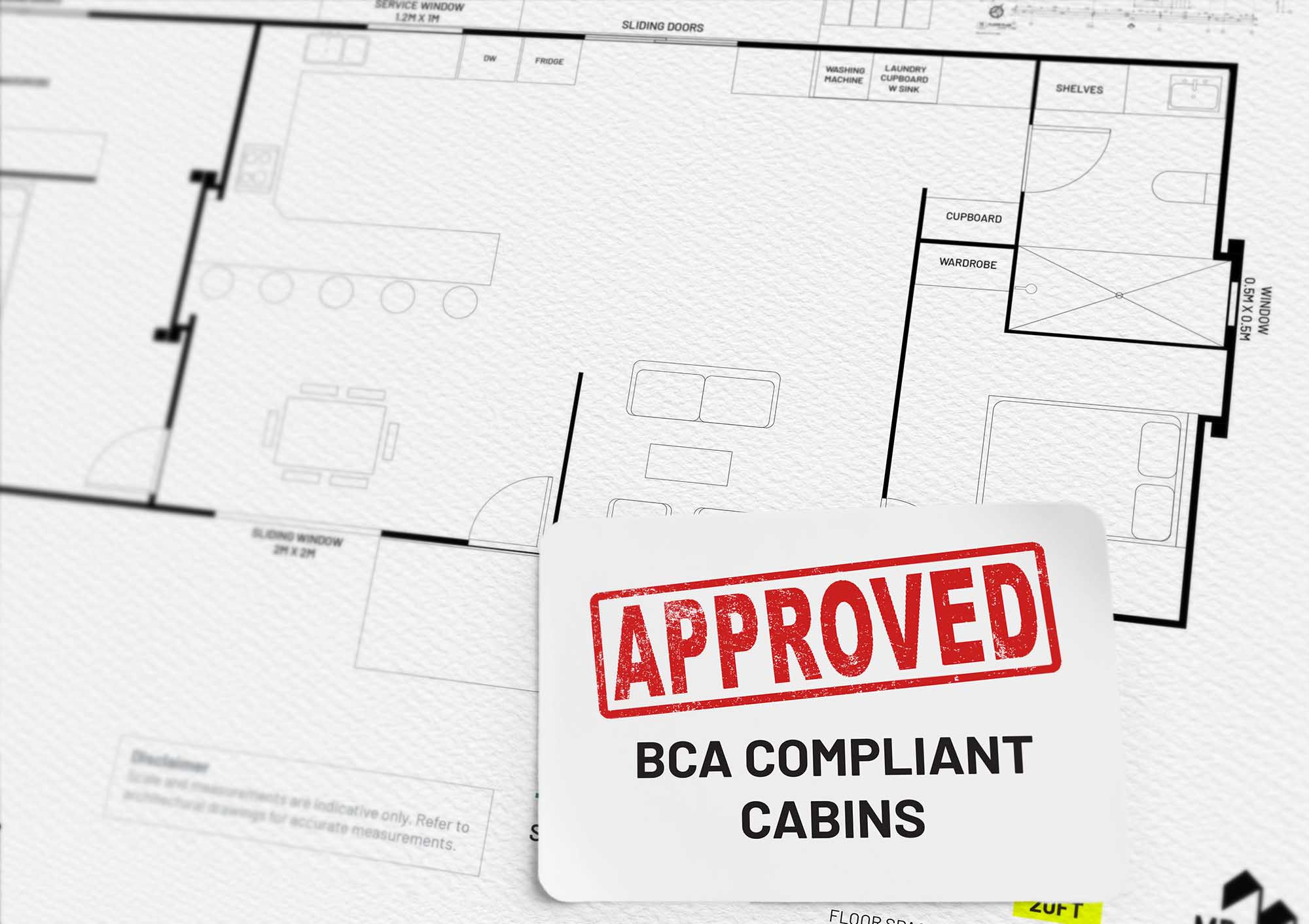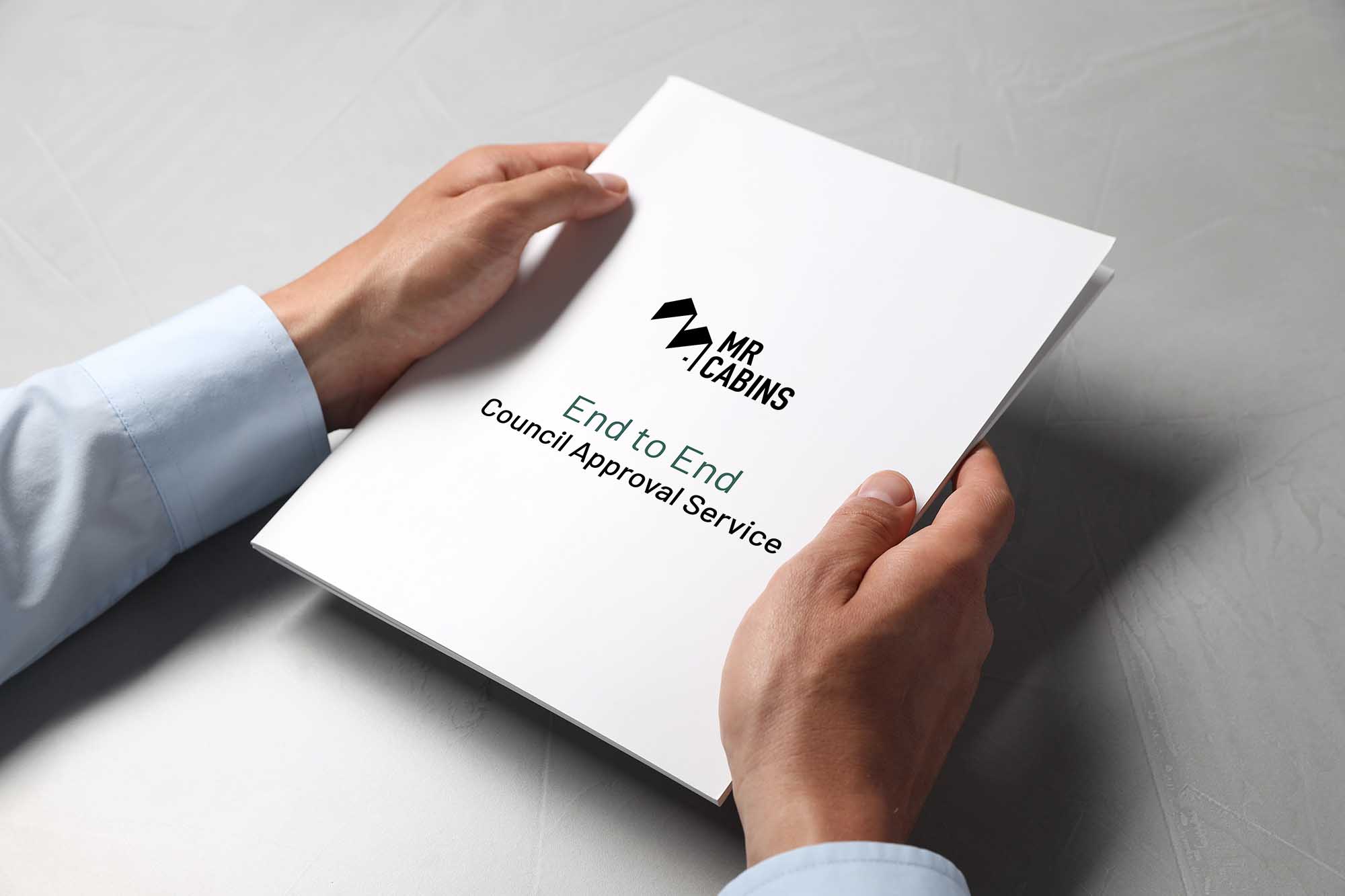Let us help you secure Council Approval
Before you can start building or enjoying your dream container home, securing council approval is a crucial first step. Without it, you risk wasting money, delays or being forced to change or remove your build altogether.
At Mr Cabins, our in-house experts make sure you get it right the first time. We manage the full container home council approval process to deliver Australian compliant cabins so you can move forward with confidence and focus on creating a space that’s truly your own.

Area Specific Zoning Laws
Specific Planning Conditions
BCA Compliance
Understanding council approval for container homes
Before a container home can be installed, it must meet local council requirements to ensure it’s safe, legal and suitable for the property. Approval confirms that the home complies with planning regulations, building standards and land-use rules.
Council approval for container homes can be complex, as each area has its own zoning laws, planning conditions and codes. We see many people attempt the process themselves, only to come back to us after wasting valuable time and money.
That’s why Mr Cabins takes care of the whole council approval process in-house — so it’s handled smoothly from start to finish by the same team bringing your dream container home to life. With a 100% success rate, we’re proven experts in navigating the regulations that often trip others up. And since we’re one of the few companies who can actually get approval for portable dwellings, you can relax knowing what you’re building is compliant in Australia.
The risks of non-compliant builds
Still searching for no-council-approval portable homes? Unfortunately, most dwellings require proper certification to be legal, safe and insurable. Choosing cheap imports or uncertified builds can expose you to serious risks:
Unsafe wiring, plumbing, steel and materials
Fines or removal if discovered by the council
Seizure at customs without asbestos certification
Poor quality construction that can cost $80k+ to fix
No energy rating, leading to high running costs

Council approval requirements across states
In most cases, cabins are classed as Class 1a buildings, meaning they’re permanent dwellings and need full development approval with engineering and compliance documentation.
Generally stricter; most require a Complying Development Certificate (CDC) (Relevant for shipping container homes council approval in QLD).
Almost always need a Development Application (DA).
Usually, building permits or a CDC.

Common issues with trailer homes

We often get asked about trailer homes, but they come with serious limitations and risks that make them unsuitable for most people. Here’s why:
Weight Limits
Must be under 2.5 tonnes, forcing builders to cut corners with weaker materials.
Movement Rules
In NSW, they must be moved regularly, can only house one family and for limited timeframes; other states are following.
Hidden Costs
Licensed trailers cost $15k–$30k before compliance issues.
No insurance
Non-compliant cabins that can’t achieve council approval are generally uninsurable.
Tighter rules
Councils are cracking down as unsafe trailer homes flood the market.

Get council approval support with Mr Cabins
Building without approval can leave you with fines, no insurance and even being forced to remove your cabin. Don’t risk it. At Mr Cabins, we offer a deposit-back guarantee if council approval isn’t achieved.
Our in-house team manages the whole process so your cabin is approved, compliant and ready to add value to your property. Speak to us today to get started on an Australian-compliant granny flat, studio or primary dwelling.
Get in touch
Contact us now for a personalized quote and explore your options for your space. If you’d rather just pick up the phone and talk, give us a call on the number below.
FAQs
Find answers to your most pressing questions about council approval.
Yes, in most cases. Even small dwellings usually need tiny homes council approval, especially if fixed to a site or lived in permanently. In Victoria and Western Australia, cabins under 60sqm may not need council approval but still require a builder’s permit with full engineering drawings, which we organise through our partnered builders.
Approval requires submitting plans, reports and compliance documents, usually taking two to four months depending on the council. We handle the entire process so you don’t have to.
Our service is a flat fee of $2,000, with a deposit-back guarantee if approval isn’t achieved and an optional $350 preliminary assessment. Most sites also need around $10,000 in engineering drawings (plans, soil test, energy rating, inspections). Additional state fees include:
- DA (NSW and SA): ~$6,000
- CDC (QLD, VIC, WA): ~$3,000
- Builder’s permit (VIC and WA): ~$2,000
